I am not sure that I am the right person to offer today’s reflection. I hate being unseen. I want to be noticed and honored. I hate being weak and not good enough – the exact same things the Pharisees are trying to avoid – and what does Jesus do? He issues many condemnations upon them.
In good Ignatian fashion, I place myself into this scene and I am one of the Pharisees wearing a giant phylactery on my head and tassels longer than I am tall. It is laughable really. We talk a good talk, but our walk is far from God. I have deep wounds that trigger my desires for recognition and acceptance. I wonder if the same was true for the Pharisees. Why did they seek places of honor and prestige? We all desire to be seen and known by God (CCC 27), but are we demanding others to fill this role? Only an honest examination of conscience can help us answer this.
Are my actions humble?
- Do I hold those I have authority over – children, employees, students, or patients – to severe standards without offering help?
- In my efforts to prove myself, am I unknowingly putting unrealistic expectations on those around me?
- Do I complain about or seek attention from my family for all that I do?
- Do I seek attention through actions or in conversations so as to be seen as more holy, religious, intellectual, or socially connected?
- If I work within the Church, am I giving of myself with generosity or resentment? Do I judge and gossip about those who don’t fall into the norms of the faith?
Jesus calls all of us to leadership whether in the home, the Church, or in the world. That is what discipleship is – leadership. St. Paul confirms what Jesus showed us in choosing weak and lowly men to be His closest 12 disciples (1 Cor 1:26-29). Jesus wants humble disciples who will serve. He demonstrated this in His own life.
God could have come in strength, majesty, and power to lead as a king, but instead, He came as an infant dependent on Joseph and Mary. He came with authority but taught others by His example of service (like when He washed His disciples’ feet in John 13). Jesus calls us today to see ourselves for who we are, beloved children of God, fully dependent on the Father, weak on our own, but strong in humble service of God and neighbor.
No estoy seguro que sea la persona adecuada para ofrecer la reflexión de hoy. No me gusta cuando nadie me ve. Quiero que me noten y me honren. No me gusta ser débil y no ser lo suficientemente bueno (exactamente las mismas cosas que los fariseos intentaban evitar), y ¿qué hace Jesús? Los condena fuertemente.
Al estilo ignaciano, me coloco en esta escena y soy uno de los fariseos que lleva una filacteria gigante en la cabeza y borlas más largas que mi altura. De verdad es ridículo. Hablamos bien, pero nuestras acciones están lejos de Dios. Tengo heridas profundas que provocan deseos de reconocimiento y aceptación. Me pregunto si lo mismo era cierto para los fariseos. ¿Por qué buscaban lugares de honor y prestigio? Todos deseamos ser vistos y conocidos por Dios (CIC 27), pero ¿estamos exigiendo a otros que desempeñen este papel? Solo un examen de conciencia honesto puede ayudarnos a responder a esta pregunta.
¿Son humildes mis acciones?
- ¿Exijo a los que están bajo mi autoridad (niños, empleados, estudiantes o pacientes) estándares severos sin ofrecerles ayuda?
- En mis esfuerzos por demostrar mi valía, ¿estoy poniendo inconscientemente expectativas poco realistas en quienes me rodean?
- ¿Me quejo o busco la atención de mi familia por todo lo que hago?
- ¿Busco atención a través de acciones o en conversaciones para que me vean como más santo, religioso, intelectual o socialmente conectado?
- Si trabajo dentro de la Iglesia, ¿me doy con generosidad o resentimiento? ¿Juzgo y chismorreo de quienes no caen dentro de las normas de la fe?
Jesús nos llama a todos al liderazgo, ya sea en el hogar, la Iglesia o en el mundo. Eso es el discipulado: liderazgo. San Pablo confirma lo que Jesús nos mostró al elegir a hombres débiles y humildes para que fueran sus 12 discípulos más cercanos (1 Cor 1,26-29). Jesús quiere discípulos humildes que sirvan. Lo demostró en su propia vida.
Dios podría haber venido con fuerza, majestad y poder para dirigir como un rey, pero en lugar de eso, vino como un bebé que dependía de José y María. Vino con autoridad, pero enseñó a otros a través de su ejemplo de servicio (como cuando lavó los pies de sus discípulos en Juan 13). Jesús nos llama hoy a vernos como somos, hijos amados de Dios, totalmente dependientes del Padre, débiles por nosotros mismos, pero fuertes en el servicio humilde a Dios y al prójimo.
 Former NPS Park Ranger, Catholic educator, and Youth Minister, Melissa Lucca now spends her days evangelizing family and neighbors as a stay-at-home mom. She holds an MA in Theology from the Augustine Institute and pursues personal study in her spare time. Melissa loves Ignatian Spirituality, Mother Mary, and rock climbing. If you don’t hear her and her kiddo laughing at home, then they are probably out on an adventure!
Former NPS Park Ranger, Catholic educator, and Youth Minister, Melissa Lucca now spends her days evangelizing family and neighbors as a stay-at-home mom. She holds an MA in Theology from the Augustine Institute and pursues personal study in her spare time. Melissa loves Ignatian Spirituality, Mother Mary, and rock climbing. If you don’t hear her and her kiddo laughing at home, then they are probably out on an adventure!
Feature Image Credit: After Gaspar de Crayer, art.diocesan.com/stock-photo/the-adoration-of-the-magi-14533/
The views and opinions expressed in the Inspiration Daily blog are solely those of the original authors and contributors. These views and opinions do not necessarily represent those of Diocesan, the Diocesan staff, or other contributors to this blog.
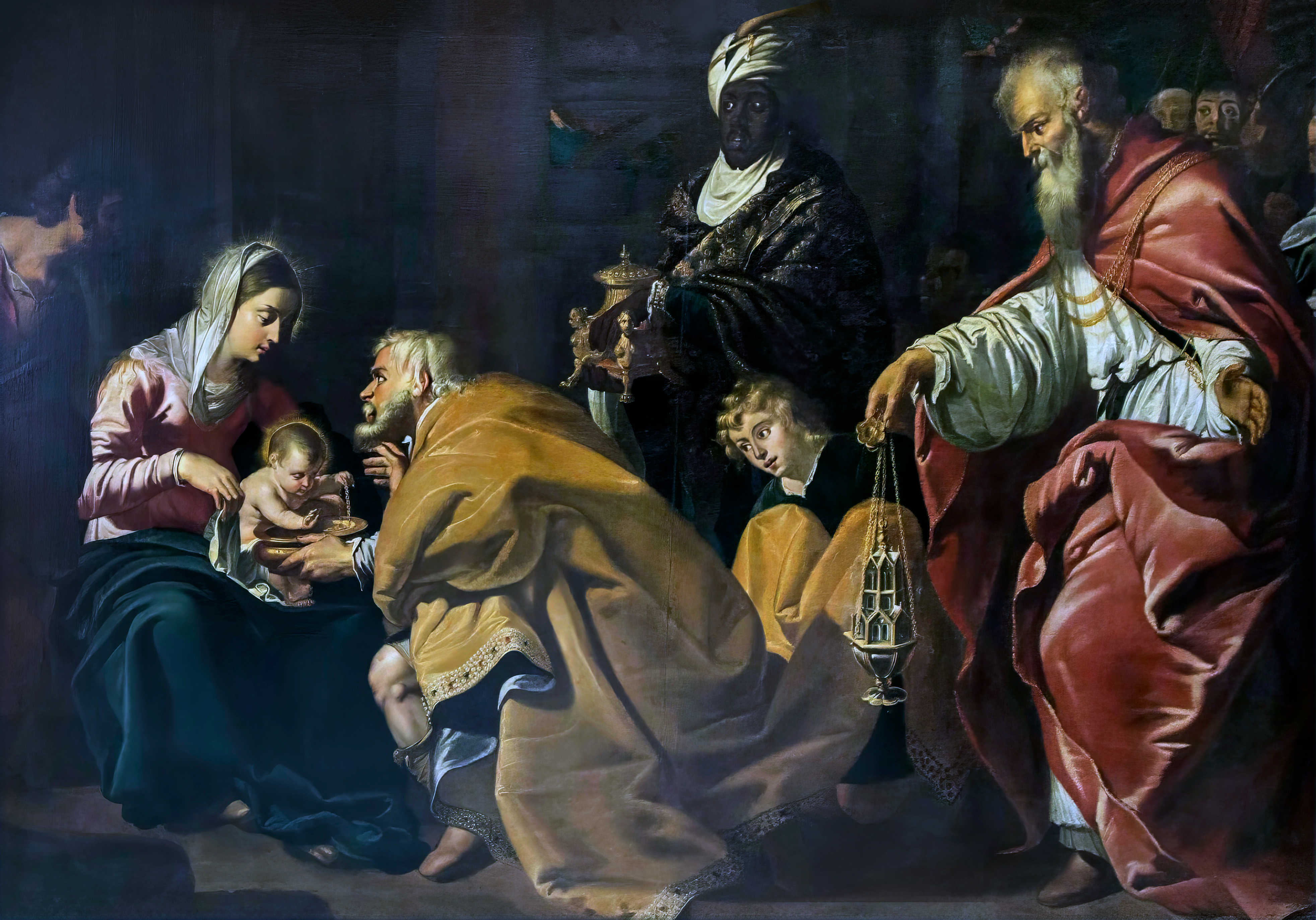

 Mike Karpus is a regular guy. He grew up in Michigan’s Upper Peninsula, graduated from Michigan State University and works as an editor. He is married to a Catholic school principal, raised two daughters who became Catholic school teachers at points in their careers, and now relishes his two grandchildren, including the older one who is fascinated with learning about his faith. He also has served on a Catholic school board, a pastoral council and a parish stewardship committee. He currently is a lector at Mass, a Knight of Columbus, Adult Faith Formation Committee member and a board member of the local Habitat for Humanity organization. But mostly he’s a regular guy.
Mike Karpus is a regular guy. He grew up in Michigan’s Upper Peninsula, graduated from Michigan State University and works as an editor. He is married to a Catholic school principal, raised two daughters who became Catholic school teachers at points in their careers, and now relishes his two grandchildren, including the older one who is fascinated with learning about his faith. He also has served on a Catholic school board, a pastoral council and a parish stewardship committee. He currently is a lector at Mass, a Knight of Columbus, Adult Faith Formation Committee member and a board member of the local Habitat for Humanity organization. But mostly he’s a regular guy.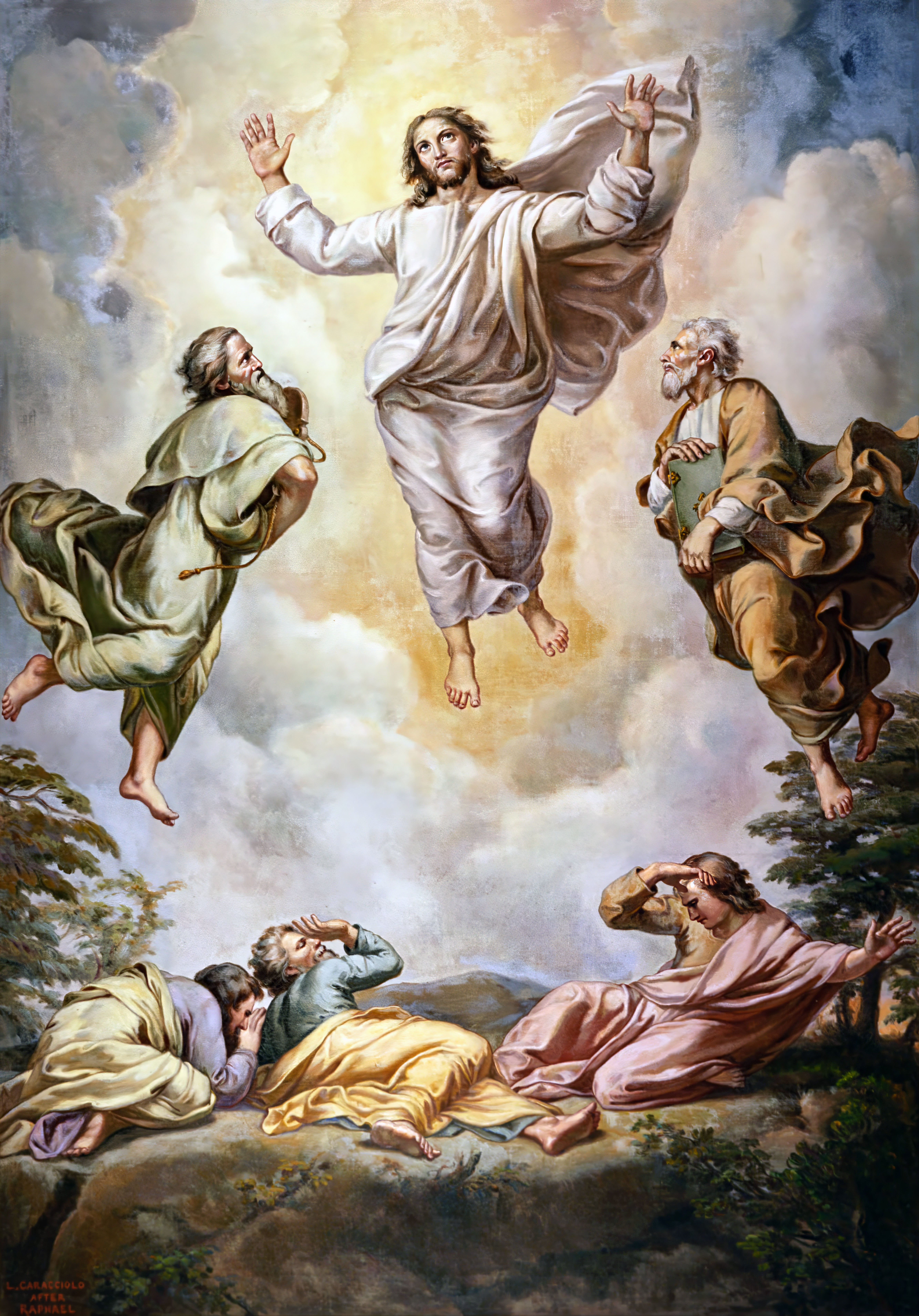
 Heather Orlowski and her husband are busy parents of three little girls. The Catholic Church holds a special place in her heart and in her entire life. She attended Catholic schools from Kindergarten through college. She graduated from Aquinas College with a degree in Elementary/Special Education. Catholic Education is very important to her and she now teaches 1st and 2nd grades at St. Therese Catholic School. In her free time, she loves creating memories with her family and watching her little girls play soccer.
Heather Orlowski and her husband are busy parents of three little girls. The Catholic Church holds a special place in her heart and in her entire life. She attended Catholic schools from Kindergarten through college. She graduated from Aquinas College with a degree in Elementary/Special Education. Catholic Education is very important to her and she now teaches 1st and 2nd grades at St. Therese Catholic School. In her free time, she loves creating memories with her family and watching her little girls play soccer. 
 Hailing from Nashville, Catherine is a graduate of Christendom College with a lifelong passion for words. Her love of writing and her Catholic Faith continue to shape her as a freelance editor, copywriter, and (aspiring) novelist, where she pursues her passions for the love and greater glory of God.
Hailing from Nashville, Catherine is a graduate of Christendom College with a lifelong passion for words. Her love of writing and her Catholic Faith continue to shape her as a freelance editor, copywriter, and (aspiring) novelist, where she pursues her passions for the love and greater glory of God.

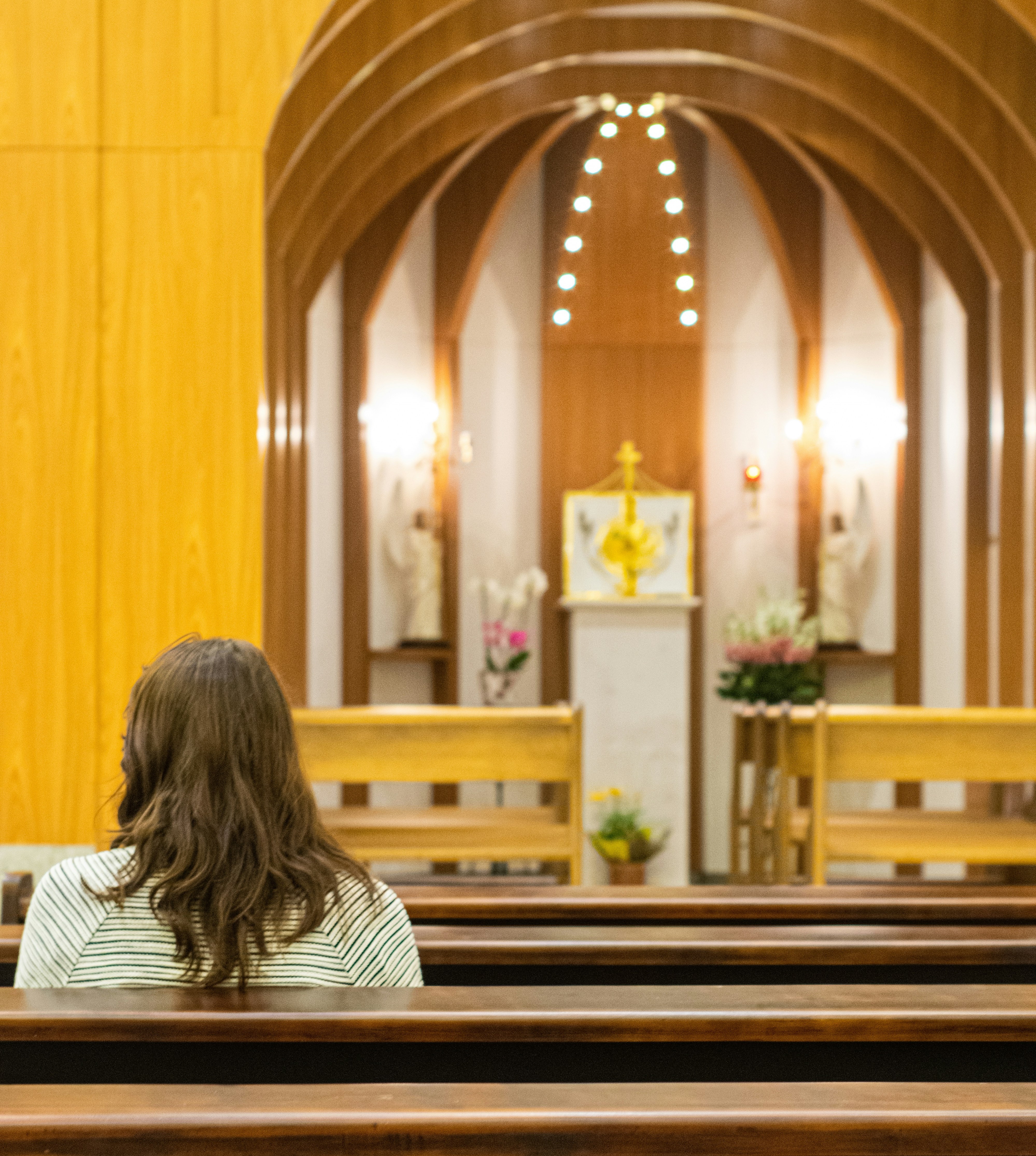
 Christine Arata is a San Francisco, California native. She lives a few blocks away from the ocean and a park. She finds nature inspiring. Her cat brings her comfort. She loves being creative not only with her writing but with almost everything, including her home cooking. Her studies in the Catholic faith are ongoing. In 2019, when she discovered St. Hildegard of Bingen was underrepresented by Catholics, she found a purpose. Her latest website, St. Hildegard’s Wisdom features blog posts about all of that:
Christine Arata is a San Francisco, California native. She lives a few blocks away from the ocean and a park. She finds nature inspiring. Her cat brings her comfort. She loves being creative not only with her writing but with almost everything, including her home cooking. Her studies in the Catholic faith are ongoing. In 2019, when she discovered St. Hildegard of Bingen was underrepresented by Catholics, she found a purpose. Her latest website, St. Hildegard’s Wisdom features blog posts about all of that: 

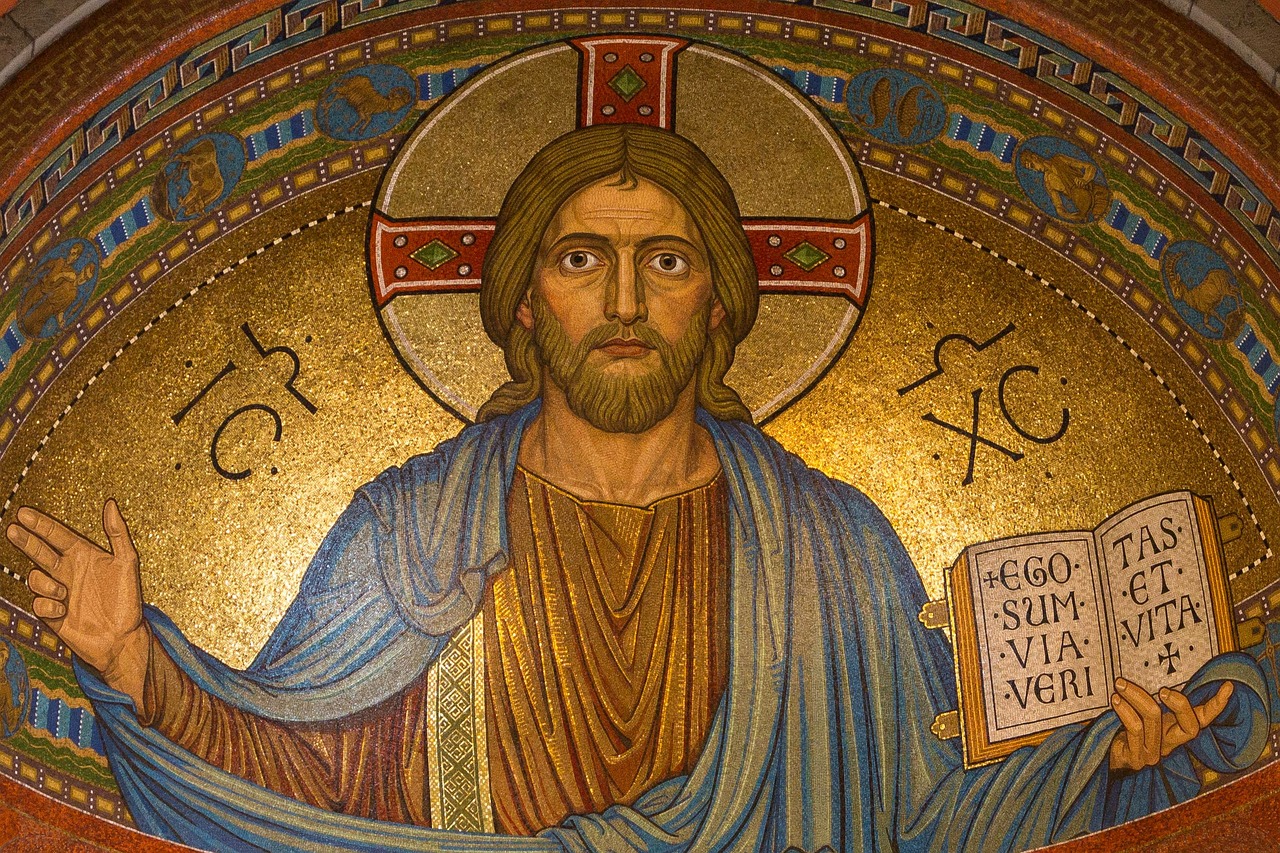
 Kathryn Mulderink, MA, is married to Robert, Station Manager for Holy Family Radio. Together they have seven children (including Father Rob), and eleven grandchildren. She is President of the local community of Secular Discalced Carmelites and has published five books and many articles. Over the last 30 years, she has worked as a teacher, headmistress, catechist, Pastoral Associate, and DRE, and as a writer and voice talent for Catholic Radio. Currently, she serves the Church by writing and speaking, and by collaborating with various parishes and to lead others to encounter Christ and engage their faith. Her website is
Kathryn Mulderink, MA, is married to Robert, Station Manager for Holy Family Radio. Together they have seven children (including Father Rob), and eleven grandchildren. She is President of the local community of Secular Discalced Carmelites and has published five books and many articles. Over the last 30 years, she has worked as a teacher, headmistress, catechist, Pastoral Associate, and DRE, and as a writer and voice talent for Catholic Radio. Currently, she serves the Church by writing and speaking, and by collaborating with various parishes and to lead others to encounter Christ and engage their faith. Her website is 
 Tami Urcia is a midwestern gal from a large Catholic family. As a young adulthood she was a missionary in Mexico, where she studied theology and philosophy. After returning stateside bilingual, she gained a variety of work experience, traveled extensively and finished her Bachelor’s Degree at Brescia University. She loves organizing and simplifying things, watching her children play sports, deep conversations with close family and friends and finding unique ways to brighten others’ day with Christ’s love. She works full time at Diocesan in the Software Department and manages the Inspiration Daily reflections. She is also a guest blogger on
Tami Urcia is a midwestern gal from a large Catholic family. As a young adulthood she was a missionary in Mexico, where she studied theology and philosophy. After returning stateside bilingual, she gained a variety of work experience, traveled extensively and finished her Bachelor’s Degree at Brescia University. She loves organizing and simplifying things, watching her children play sports, deep conversations with close family and friends and finding unique ways to brighten others’ day with Christ’s love. She works full time at Diocesan in the Software Department and manages the Inspiration Daily reflections. She is also a guest blogger on 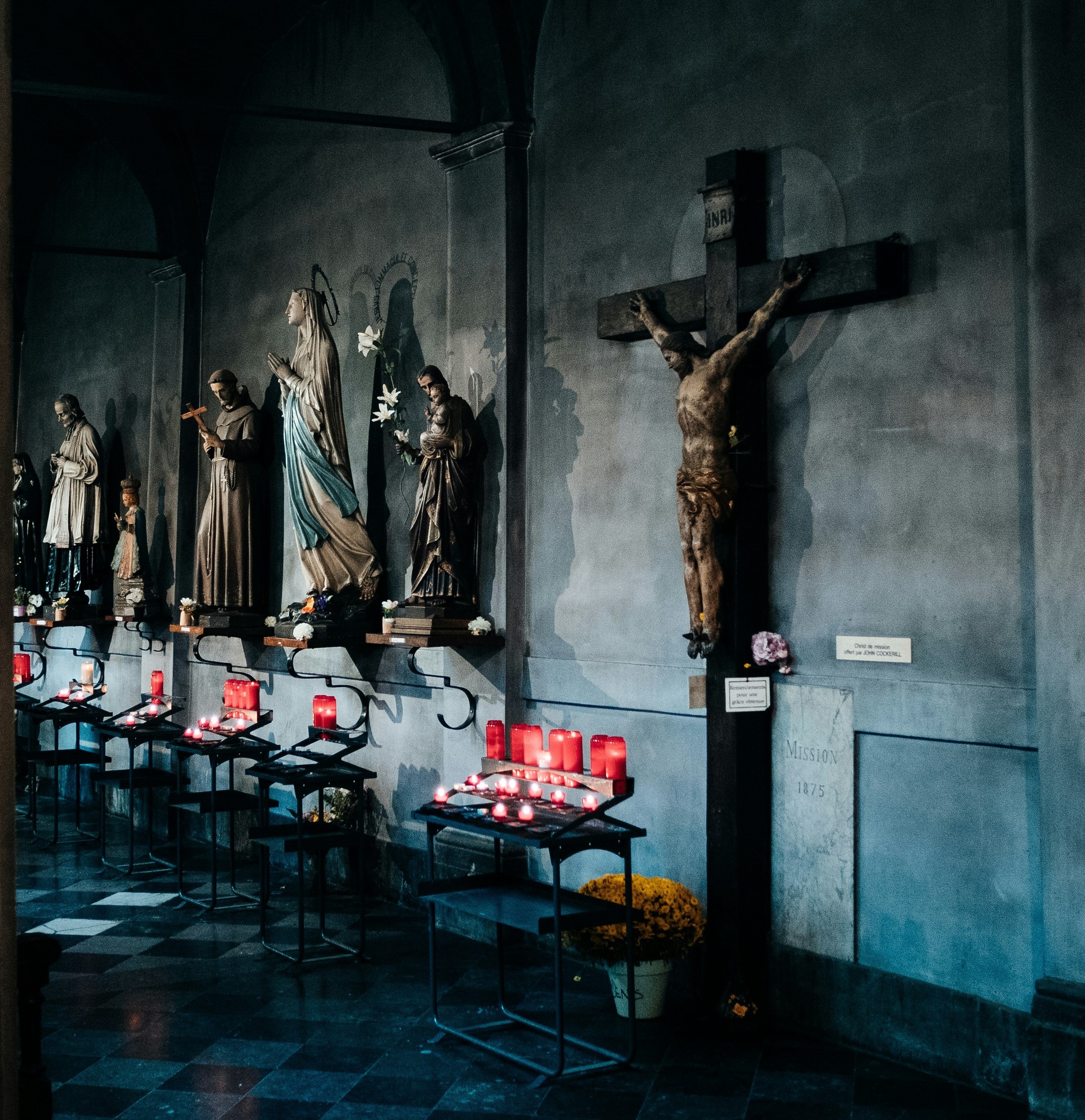
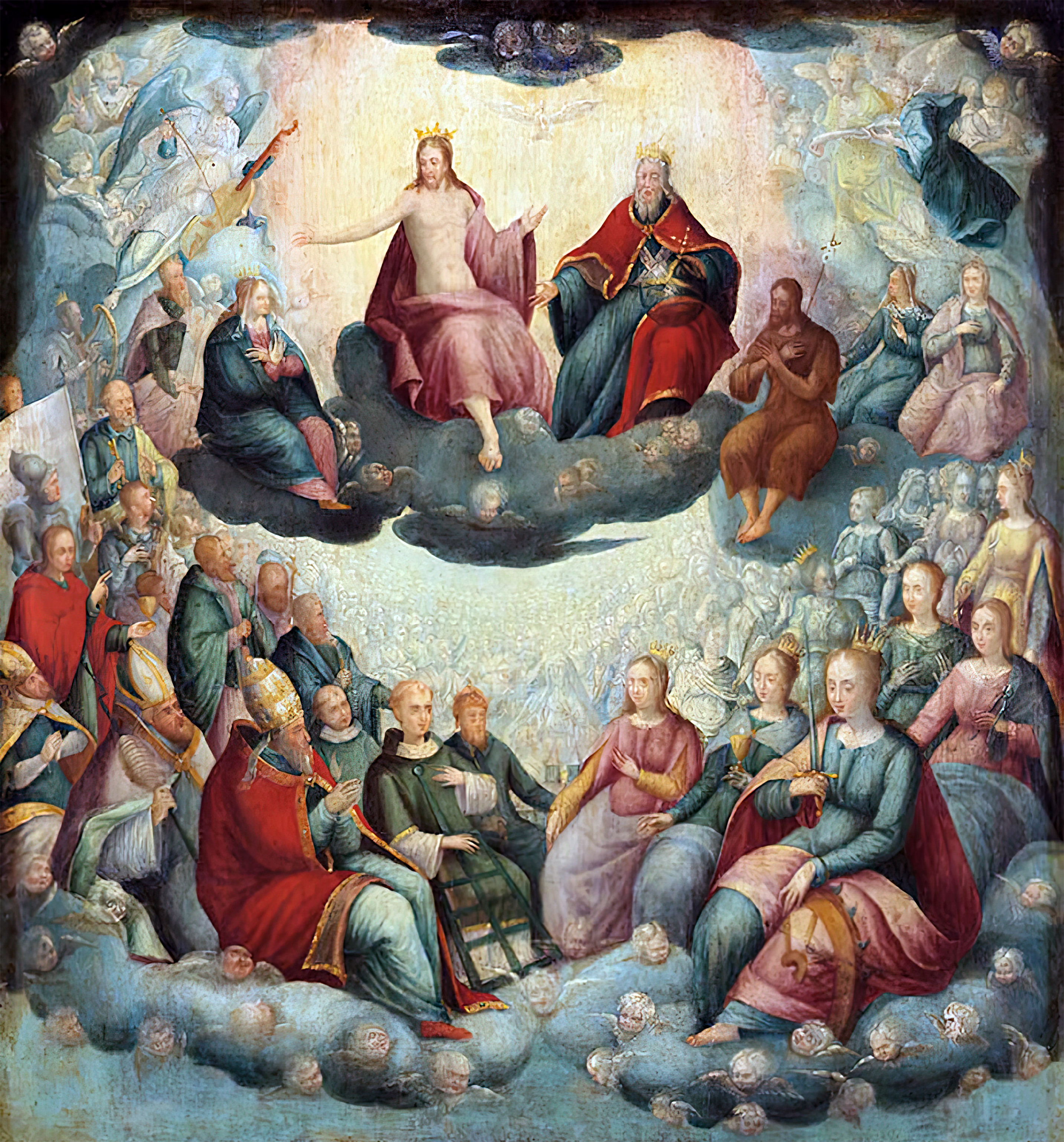
 Colleen Orchanian is a podcaster, blogger, and spiritual director who desires to help others have a more profound encounter with God. She is the author of three books: Nearer My God to Thee, Times of Grace, and Lingering with God. Her podcast is Food for Thought (Spiritually Speaking). You can learn more at
Colleen Orchanian is a podcaster, blogger, and spiritual director who desires to help others have a more profound encounter with God. She is the author of three books: Nearer My God to Thee, Times of Grace, and Lingering with God. Her podcast is Food for Thought (Spiritually Speaking). You can learn more at 
 Allison Gingras (
Allison Gingras (